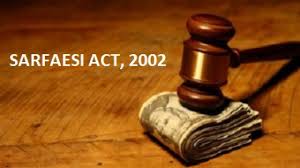A court may refuse to hear an appeal on merits involving the exact disputed parties, if its prior order has been willfully disobeyed. This was observed by the quorum of judges Vipin Singh J. and Rekha Palli J. in the matter of Sheikh M. Maroof v Phoenix Arc Pvt. Ltd. [W.P.(C) 4539/2021] where the petitioner had willfully flouted the orders of court for repayment by the Debt Recovery Tribunal (DRT).
The petitioner claimed that he was a tenant in the two flats; which were mortgaged properties and had been repossessed by the respondents. The petitioner on that premise sought to move a Securitisation Application (S.A.) before the DRT under Section 17 of the SARFEASI ACT. The petitioner also sought protection against dispossession before the DRT. Despite the said order, the petitioner did not deposit the said amount of Rs.2 crores, and once again approached the DRAT, seeking extension of time on the ground that the petitioner was making arrangements for the amount and, in the interregnum, the petitioner deposited an amount of Rs.30 lakhs with the DRAT. However, the DRAT rejected the application of the petitioner. Since the petitioner did not deposit the amount of Rs.2 crores, the petitioner was issued a show cause notice on 17.12.2020 on the ground that the petitioner had disobeyed the interim direction issued by DRAT and therefore, the petitioner was required to show cause as to why action should not be taken against him. It is in pursuance of the said show cause notice, that the impugned order has been passed by the DRAT.
The court relied upon the judgment of M/s Prestige Lights Limited v. State Bank of India [Civil Appeal No.3827/2007] wherein the court decided that an order passed by a competent court interim or final- has to be obeyed without any reservation. If such order is disobeyed or not complied with, the Court may refuse the party violating such order to hear him on merits.
Thus, a Court which has competence to pass an order – interim or final, is entitled to take notice of its disobedience and in a given case the “drastic step” of denying a hearing to the party disobeying the order may be taken in the larger interest of justice, when the party obtaining interim relief, intentionally or deliberately, flouts such order by not abiding with the terms and conditions on which the relief is granted by the Court in his favour.
The court observed that the petitioner gave an undertaking to the DRT, which he dishonoured, and his only excuse was that if he would have not given the undertaking to vacate the properties, he would have lost the possession of the properties in question. This meant that when he gave the undertaking, he did not even intend to fulfil the same. The bench sought that it could be well amount to cheating. Similarly, before the DRAT, he obtained a conditional interim order of protection against dispossession and failed to fulfil the condition, and continued to enjoy the interim protection granted by the DRAT.
The court sounded judgment that, “For the aforesaid reasons, we are not inclined to exercise our discretionary jurisdiction of judicial review in favour of the petitioner. We, accordingly, dismiss the present petition, along with the pending applications, with costs quantified at Rs. 2,00,000/- to be paid to the Delhi High Court (Middle Income Group) Legal Aid Society within two weeks.”


